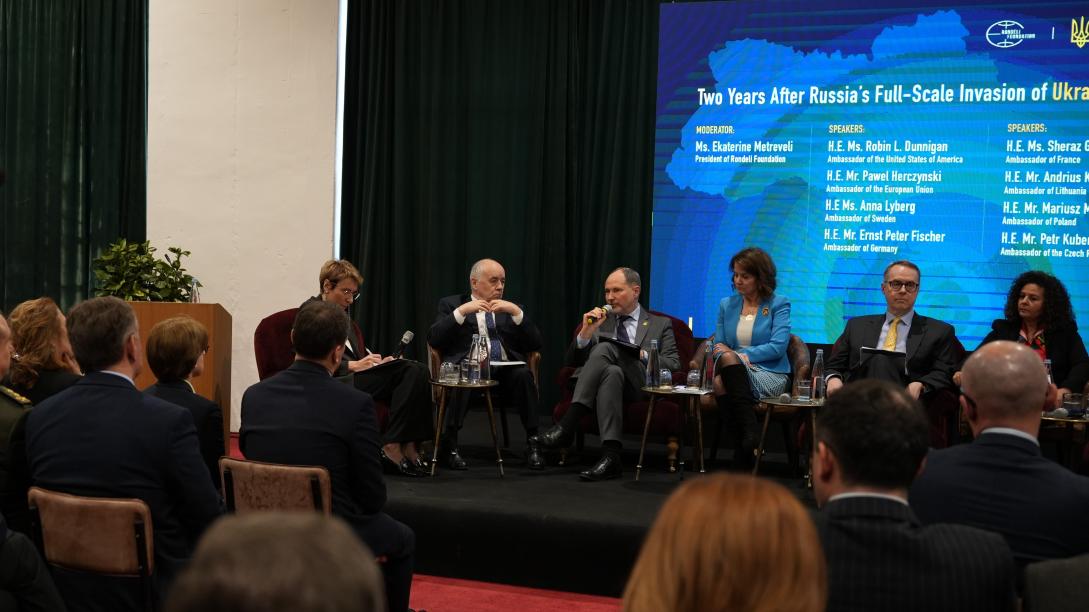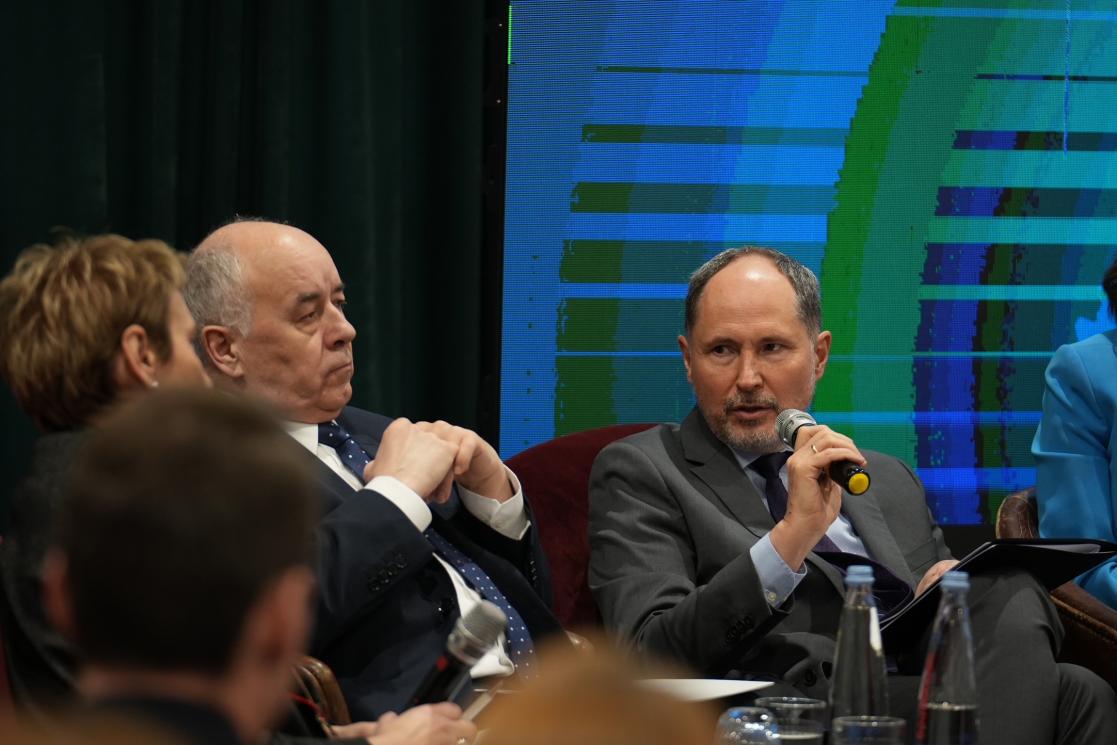Speech by the EU Ambassador to Georgia, Pawel Herczynski at the panel discussion Two Years After Russia’s Full-Scale Invasion of Ukraine

Check against delivery
Dear Excellences, Ladies and Gentlemen,
First of all, let me thank the organisers, the Rondeli Foundation, the Embassy of Ukraine and the Friedrich Ebert Stiftung for inviting me to speak at this event.
I would like to start by stating loud and clear that the EU and our Member States stand united in their unwavering support of Ukraine in the face of Russia’s brutal, unprovoked, and unjustified aggression.
This war is not only about Ukraine or Russia. What is being tested here are international rules, the UN Charter, and key principles of international law.
EU support to Ukraine is not a promise but a reality. To date, overall assistance from the EU and its Member States amounts to almost €90 billion of which approximately €28 billion in military assistance.
Earlier this month, on 1st February, all European Leaders agreed by unanimity to establish a new ‘Ukraine Facility’, up to €50 billion, for the period 2024-2027, to provide for reconstruction and modernisation of the country. This will be vital to keep the Ukrainian state afloat in the upcoming years.
However, the military situation remains extremely difficult and we need to scale up our military support. We need to give Ukraine “what it takes” to liberate its territory: ammunition advantage, more long-range missiles, air superiority, more drones, and more military training.
Production capacity in the EU even increased by 40% since the full-scale invasion of UA.
Our military training mission, the EU Military Assistance Mission (EUMAM) has been very successful. We have just reached the target of 40 000 trained personnel. From now, until summer, we will train an additional 20 000.
The EU is also strongly committed to ensure that war crimes, including the crime of aggression committed in Ukraine, do not go unpunished.
The other battle we fight is the battle of narratives. The battle for brains.
The perception of Russia’s war of aggression against Ukraine in the rest of the world will be decisive in isolating Putin and making our sanctions work.
What else can we do to make Russia retreat from Ukraine and to prevent this war developing into a frozen conflict:
We need to support Ukraine’s ‘Peace Formula’, sometimes called the 10 points of Zelensky. This formula is the only serious peace proposal on the table, and we are calling on all countries committed to peace to join us in putting it into action.
Restrictive measures. The EU has so far adopted 13 packages of sanctions, including individual measures against over 1950 Russian individuals and entities altogether, and sectoral measures, including export controls and restrictions on the transport, energy, trade, finance and other sectors. We expect our partners, including candidate countries, to join us.
Ukraine’s integration in the EU can contribute to increasing European security and limiting Russia’s imperialist ambitions. While Ukraine is fighting a war, it has managed to complete four out of the seven steps set out in 2022 Opinion on Ukraine's membership application: the constitutional justice reform; the selection of the High Council of Justice; the Anti-Corruption Programme; progress against money-laundering; important measures to curb the oligarchs’ grip on public life; the new media law; and progress on national minorities. The remaining reforms are already on their way, and the Commission commends these efforts.
Let me reiterate what HRVP Borrell said during his recent visit to Ukraine: The Kyiv revolution is the revolution of dignity. It is also Europe’s battle of dignity – we need to defend the values that Europe was built on.
For the war to last less time, our support must be stronger. We need to evolve from for as long as it takes” to “whatever it takes”.
We stand with Ukraine.
The event was organized by Georgian Foundation for Strategic and International Studies (Rondeli Foundation), in partnership with the Embassy of Ukraine in Georgia and through the support of the Friedrich-Ebert-Stiftung (FES).

EUDEL to GEO
